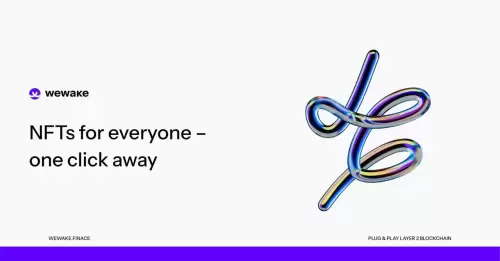 |
|
 |
|
 |
|
 |
|
 |
|
 |
|
 |
|
 |
|
 |
|
 |
|
 |
|
 |
|
 |
|
 |
|
 |
|
Cryptocurrency News Articles
Stablecoins, Fintech, and the Future in 2025: A New York Minute
Jul 24, 2025 at 07:58 pm
Explore the transformative role of stablecoins in fintech by 2025, covering adoption, challenges, and the competitive landscape, all with a New York twist.

Yo, what's up? By 2025, stablecoins are straight-up changing the game in fintech, makin' finance faster, cheaper, and way more accessible. Let's break down what's poppin'.
Stablecoins: The Core Idea
Stablecoins are digital currencies pegged to stable assets like the U.S. dollar, offering the benefits of crypto without the crazy price swings. Fintech companies are all over this because, in their world, reliability is everything.
Why Fintech Companies Are Adopting Stablecoins
Traditional banking is slow and pricey. Stablecoins offer:
- Instant Settlements: Cross-border payments in minutes, not days.
- Lower Costs: Cheaper than traditional remittance channels.
- Programmability: More flexible than fiat-based systems.
Imagine sending USDC from Nigeria to the Philippines in real-time. No SWIFT codes, no hidden fees—just pure, unadulterated financial empowerment.
Building Trust Through Tech
Early fintech had trust issues. Stablecoins fix that with blockchain tech, offering transparent, immutable records. Every transaction is verifiable, boosting confidence in the whole ecosystem.
Plus, many stablecoin projects have regular audits and proof-of-reserve disclosures. Transparency that traditional banks can't even touch.
Use Cases Making Waves
Stablecoins are popping up everywhere:
- Cross-Border Payments: Instant and cheap international transfers.
- DeFi Protocols: Fueling decentralized finance applications.
- Supply Chain Finance: Streamlining payments and reducing fraud.
2025 and Beyond: The Future's Lookin' Bright
By now, stablecoins aren't just an idea—they're strategic. Central Banks are playing with CBDCs, and private stablecoins are growing like crazy. The next level? Interoperability—making stablecoins move seamlessly across different blockchains. Circle's Gateway platform, for example, enables cross-chain USDC access across blockchains like Avalanche and Ethereum.
Also, keep an eye on non-USD pegged stablecoins. As global adoption grows, regional stablecoins backed by euros, yen, or local fiat will let fintech companies serve local markets while staying digital.
Challenges to Overcome
It's not all sunshine and rainbows. We still got hurdles:
- Regulatory Uncertainty: Especially where digital currencies lack legal clarity. Hong Kong, for example, is enforcing strict stablecoin rules, including criminal penalties for unlicensed offerings.
- Education: People need to understand what stablecoins are and how to use them safely.
- Security: Poorly developed smart contracts can lead to losses.
The Competitive Edge for Fintech Startups
For startups in 2025, stablecoin integration is a must. Investors want blockchain-forward solutions, and users demand faster, cheaper ways to move money. Integrating early positions you as forward-thinking and future-proof.
But watch out for the big banks. JPMorgan's proposed data access fees could stifle innovation and make it harder for smaller players to compete. It's a battle between legacy institutions and the new digital world.
Final Thoughts
Stablecoins aren't experimental anymore; they're foundational. Fintech companies need to rethink how value is stored, transferred, and programmed. They're building new rails for a new economy.
The question isn't if stablecoins will change fintech, but who will adapt fast enough to lead that change. So, stay sharp, stay informed, and let's build this future together. Peace out!
Disclaimer:info@kdj.com
The information provided is not trading advice. kdj.com does not assume any responsibility for any investments made based on the information provided in this article. Cryptocurrencies are highly volatile and it is highly recommended that you invest with caution after thorough research!
If you believe that the content used on this website infringes your copyright, please contact us immediately (info@kdj.com) and we will delete it promptly.



























































